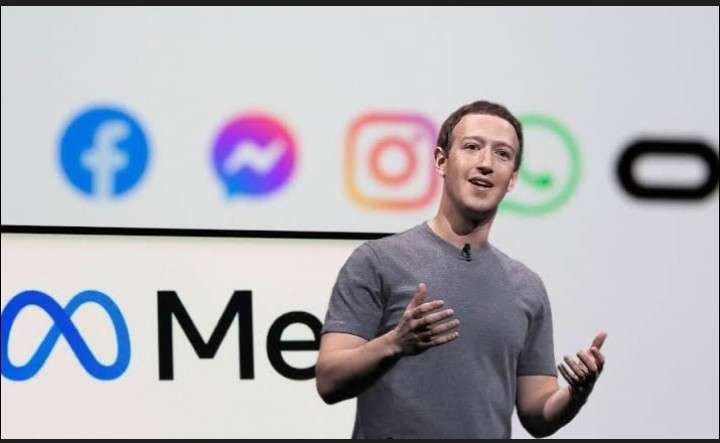In a strategic move to consolidate its position in the generative AI ecosystem, Meta, formerly Facebook, has acquired Egyptian voice AI startup PlayAI, a company best known for its advanced multilingual voice technologies.
The acquisition aims to bolster Meta’s AI offerings, particularly in voice interaction, as it ramps up competition against OpenAI and Google.
PlayAI, co-founded by Mahmoud Felfel and Hammad Syed, who previously teamed up on the Dubai-based platform Dubizzle, developed Play Dialog, a multi-turn speech model trained on hundreds of millions of conversations and capable of interpreting contextual cues and expressing nuanced emotions.
The startup also launched Play 3.0 mini, a real-time, low-latency, multilingual text-to-speech engine, and a no-code voice agent builder.
With $21 million in seed funding from heavyweights like Kindred Ventures, Y Combinator, 500 Global, Race Capital, Soma Capital, and Pioneer Fund, PlayAI gained early traction in the global voice AI sector.
Meta said the acquisition aligns with its roadmap across Meta AI, wearable technologies, digital avatars, and audio content creation.
“We’re excited to welcome the PlayAI team, whose voice innovation directly supports our mission to build more expressive, intelligent AI experiences,” a Meta spokesperson disclosed.
The entire PlayAI team will now report directly to Meta’s AI leadership.
Why Meta Acquired PlayAI
Meta’s acquisition of PlayAI is rooted in its broader strategy to catch up with rivals in the AI race, especially in areas involving human-like voice interaction.
Meta has increasingly focused on AI agents capable of richer communication in applications like virtual assistants, immersive experiences for AR/VR, and dynamic avatars in the metaverse.
PlayAI’s context-aware, emotionally expressive voice models offer a key advantage in making AI feel more human.
The move also supports Meta’s ambitions in the wearables space, where seamless, intelligent voice interaction is crucial.
What Does PlayAI Do
PlayAI’s flagship product, Play Dialog, is a multi-turn speech AI trained on hundreds of millions of voice conversations. It specializes in emotional and contextual responses, a leap beyond basic voice commands.
Their Play 3.0 mini is a fast, lightweight voice model that supports multiple languages in real-time applications. The company also provides no-code platforms and developer APIs, allowing businesses to deploy AI voice agents without complex engineering work.
Founding and Funding Journey of PlayAI
Founded by Mahmoud Felfel and Hammad Syed, tech entrepreneurs with a history at Dubizzle, PlayAI quickly rose to prominence after its inception.
In 2023, the startup secured $21 million in seed funding from top venture capital firms including Kindred Ventures, Y Combinator, and 500 Global.
The strong backing not only affirmed investor confidence in the company’s voice tech but also placed it firmly on the global innovation map.
Other Companies Owned by Meta
PlayAI now joins a portfolio of AI and tech-focused acquisitions by Meta, which include CTRL-labs (neural interface tech), Kustomer (customer service CRM), and Within (VR fitness), alongside long-standing platforms like WhatsApp, Instagram, and Oculus VR.
Meta has also built its own AI assistant, Meta AI, and released LLaMA (Large Language Model Meta AI) to compete with ChatGPT.
The acquisition of PlayAI signals Meta’s intent to deepen its AI infrastructure with homegrown and acquired innovation, especially in voice and conversational intelligence.
Talking Points
Meta’s acquisition of PlayAI is a strategic masterstroke that holds both symbolic and commercial significance, not just for Meta, but also for the broader narrative of African innovation on the global stage.
First, PlayAI’s rise from an African-led venture to a globally sought-after voice AI company is a powerful signal that the continent is not just a consumer of technology, but also a creator of cutting-edge solutions.
Unlike ChatGPT (American) and Grok (Elon Musk’s AI project), PlayAI’s African roots offer Meta a rare opportunity to diversify the origin stories of its AI assets.
This brings Meta closer to its vision of “building for the world,” especially as it pushes to capture markets in the Global South, where linguistic diversity, cultural nuance, and mobile-first behavior shape AI interaction differently.
Integrating PlayAI’s emotionally responsive, multilingual capabilities could give Meta a competitive edge in creating voice-based AI that feels more natural and inclusive across different geographies.
From a business standpoint, this acquisition gives PlayAI the infrastructure, reach, and compute power it needs to scale globally, while Meta gains a ready-made voice AI platform that fills a major gap in its generative AI roadmap.
It’s a symbiotic move, PlayAI gets access to Meta’s global deployment machinery, and Meta secures a unique, culturally-grounded technology that helps differentiate its AI offerings from Western-dominated models.
In a world increasingly concerned with representational equity in tech, this deal is not just good business, it’s smart politics and even smarter positioning.





